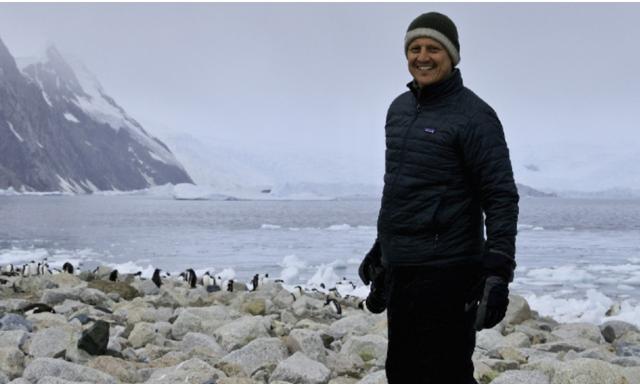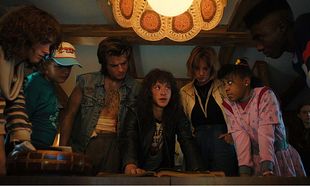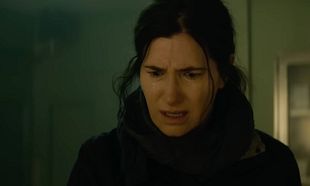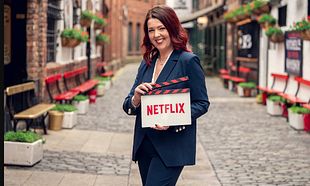The National Geographic has today launched a new docuseries which delves deep into the ocean to spotlight some of the biggest mammals that live beneath the surface.
This Earth Day 2021, 'Secrets of the Whales' launches on Disney+ as part of National Geographic. It's a fascinating new four-part documentary series, concentrating on five different whale species and how they each adapt in the ocean blue.
Filmed over three years and across 24 location around the world, we had the opportunity to have a chat with the award-winning director of the series, Brian Armstrong.
Brian has directed and produced a number of National Geographic titles in the past, and we asked him what it was like to work on 'Secrets of the Whales', and how closely involved executive producer James Cameron and narrator Sigourney Weaver were on the project.
Hi Brian, thanks for chatting with us today, and congrats on creating such a stellar series. Firstly, why whales?
Well, Red Rock Films had this idea and it was initially going to be more of a photographer profile on Brian Skerry. But as we shot more and more of the series, we approached them and suggested that maybe we could focus more on these beautiful creatures instead. So, the series fell into our lap and we couldn't have been more pleased.
The series took three years to film, but was there even more preparation to do beforehand?
Yeah, there was three or four months in the lead up to prepare, but we had a great step up because Brian Skerry had been working in this world so much already. We could tap him and his network of resources. Initially, we wanted to do five episodes on five species, but narwhals are so elusive and so hard to film that we didn't think we'd get a good hour, so we put them in the same episode as the belugas.
Our first shoot in Tonga was a total bust! The wind and rain came in, the whales didn't show up, and it was a really tough way to start the series but when you work with animals for such a long time you get to know that it's a given. You gotta battle on, it all works out in the end!
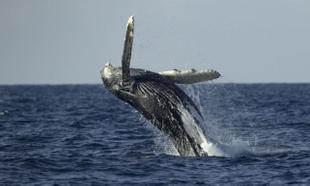
Yes, I was going to ask - does working with animals ever deter you from working on documentaries such as this?
Well, the low lows will make the higher highs. So when you finally get that shot that you've needed - it's like paternal instinct - you forget about the pain. It's like everything else is forgiven.
Whales are particularly hard - well, anything water-based is expensive. You need boats, therefore you need the right weather, and although it could be nice weather up top, it could be murky down below and that's no good. You need the sun to be out for light, and then the whales have to show up! And when they show up you have to be ready. When everything comes together, these whales have to do something and not just swim by. So trying to get those behaviours takes a long time.
Were there days that you turned up to a location and nothing happened?
Oh gosh yes! (Laughs) That's the norm. Most of what we need for the sequences on these shows, we get in a day. But it can take us a month to get that day. You never know what you're going to get, and sometimes, like in Tonga, it's a total bust. But you persevere and keep going, and National Geographic are fantastic partners because they now this stuff as well. They're very tolerant of our reports saying 'nothing today'.
What was it like to work with James Cameron and Sigourney Weaver on 'Secrets of the Whales'?
James is the perfect partner for this because he is so passionate about the environment and whales. His team came in during production and they really helped us take the series up that extra 10 percent, which is crucial when you want to turn something from great to mega great, right? We were worried at first because Red Rock Films - we're an indie - and here comes a director who has made billions of dollars! But he was a really great collaborator and he said that he was blown away from watching the first cut of our first episode about orcas. He said it was a great show, but now let's make it better.
We'd met Sigourney previously and talked to her about this. And always, from the beginning of this series, this was going to be a story about mothers and grandmothers. Whale culture revolves around it so much. And Sigourney is a badass mother and grandmother, and we always had her in mind. When they asked us for narrator suggestions, we didn't give them another option. And of course James Cameron knows her so well, so she jumped on.
The emotion and passion she puts into this project really comes through. There is one take I'll never forget, when there's a missing sperm whale that we're looking for in one episode. She's recording this episode in a closet at home in New York, she begins to read this line in particular, and then she starts to break down and cry. She's so attached to these creatures, and she really just brings that to her performance.
If there was one thing you wanted people to take away from this series, what would it be?
Whales are so much like us, and if people really get that, I think we'd all be inspired to care a lot more about our oceans. Weaved in here is the really serious stuff. We rescue some turtles who are caught up in debris at one point. It's a celebration of whales, but there are these other things there that I hope will affect people a little bit more in terms of what they eat, how they treat the oceans, and who they vote for. These little things will help protect our oceans and our sea life.
'Secrets of the Whales' is available to stream on Disney+ now.
